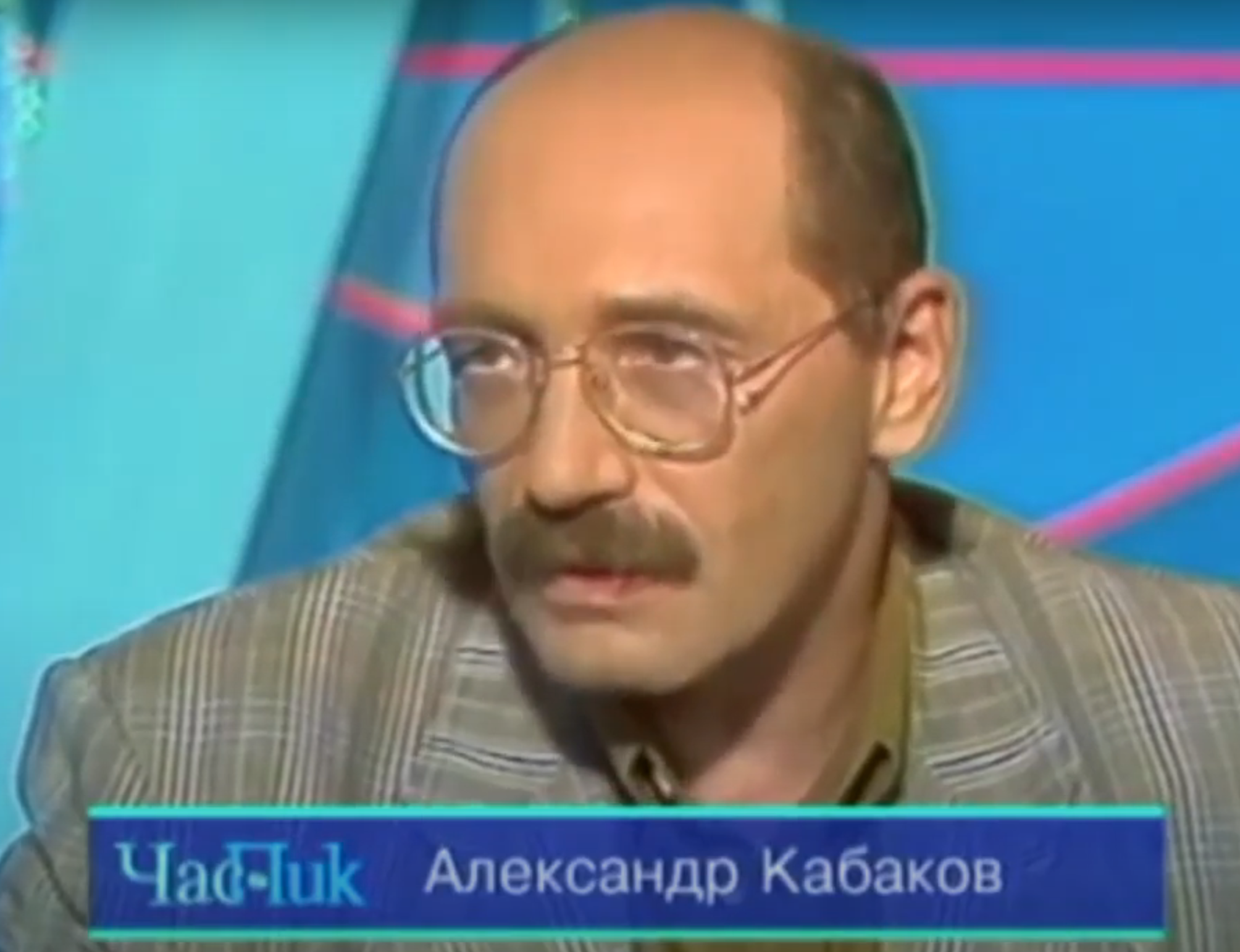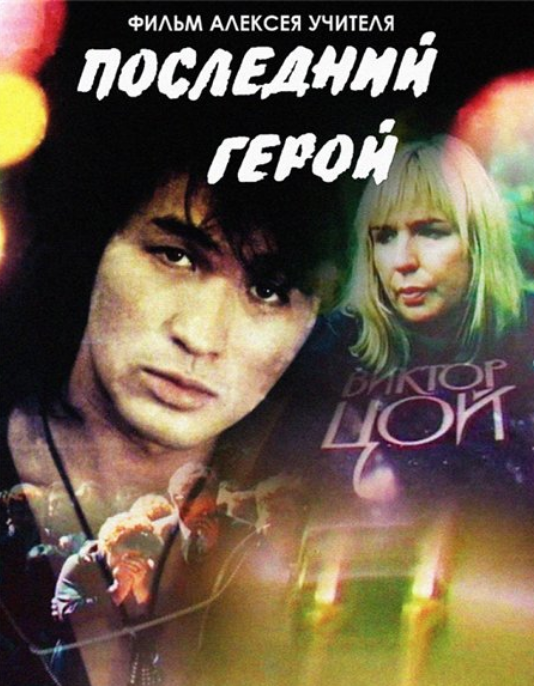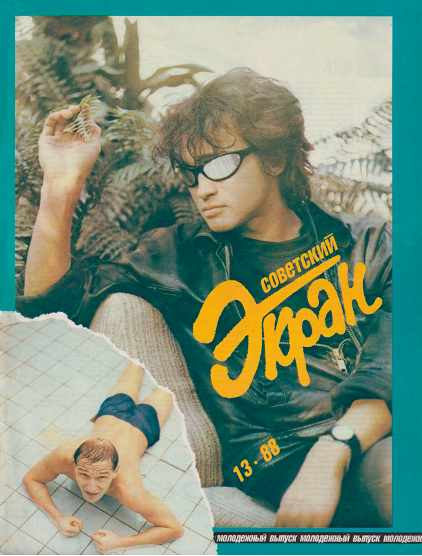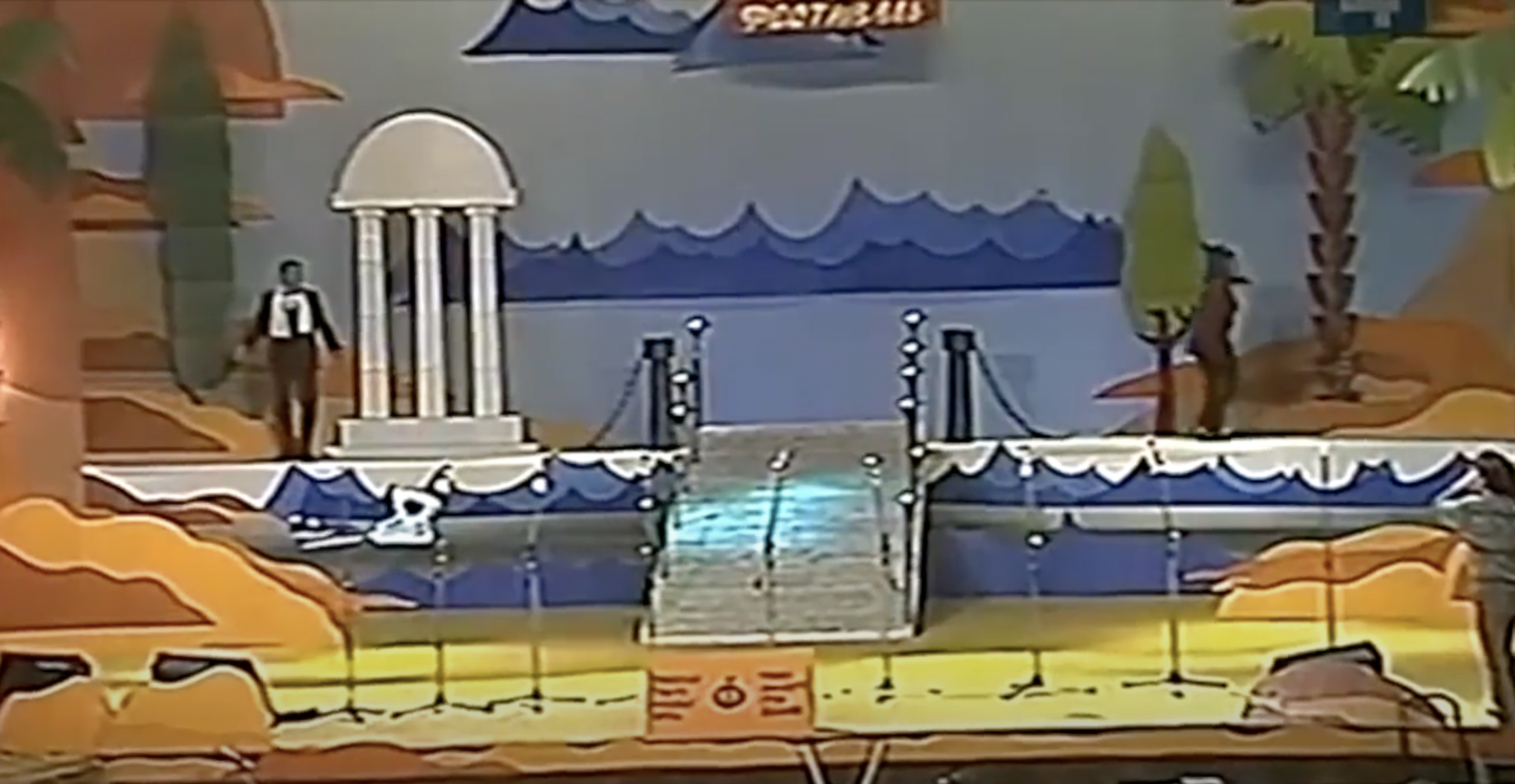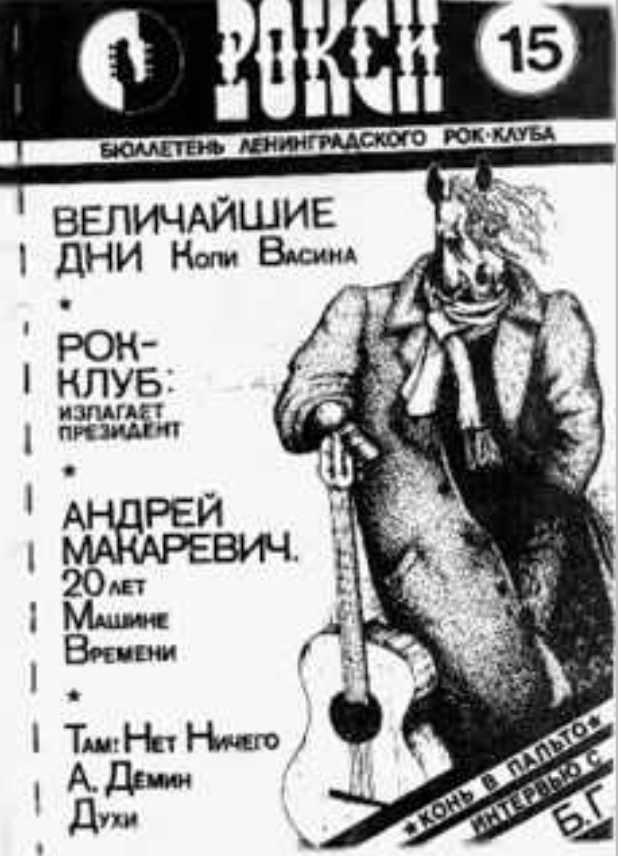Explore:
Listyev's Russian Liberals on "Chas Pik"
An excerpt from a compilation of memorable moments with Vladislav Listyev (1956-1995) and his liberal guests on "Chas Pik," aired in the week after his murder.
Viktor Tsoi’s funeral, from Alexei Uchitel’s “Last Hero,” 1992
Made in collaboration with rock star Viktor Tsoi's (1962-1990) widow, Marianna Tsoi (1959-2005), this film, directed by Alexei Uchitel (1951-), includes scenes from Tsoi's funeral and chronicles the mass mourning of the late musician—a proxy, perhaps, for mourning the perestroika era as a whole.
“Sovetskii ekran” with Tsoi on cover, 1988
The cover image from Volume 13 (1988) of Soviet Screen (Sovetskii ekran, 1925-1998) depicts Viktor Tsoi (1962-1990) of Kino and Pyotr Mamonov (1951-2001) of the Moscow-based rock band Zvuki Mu, demonstrating how late-Soviet cinema magazines established rock musicians as cultural icons, while the film industry increasingly relied on underground rock culture for commercial content.
Losing the Soviet nation on "KVN"
The winter 1992 opening broadcast of the amateur variety and improv contest show “KVN” (“the Club of the Jolly and Resourceful”). Filmed just a few months after the dissolution of the USSR, the episode features former Soviet university teams lamenting the new national borders appearing all around them.
Last issue of the samizdat “Roksi” magazine, 1990
The final print issue of the Leningrad-based samizdat rock journal Roksi, founded in 1977 by members of the rock band Aquarium and the future president of the Leningrad Rock Club (LRC). Considered the first rock publication in the Soviet Union, and subject to raids by the KGB, Roksi eventually became the official newsletter of the LRC—thus attaining legitimization by the state apparatus.
Perestroika-era Russian Women Speak to US Women
A clip from one of many perestroika-era televised conversations between American and Soviet "regular people," in which they find common ground with the help of longtime Soviet propagandist and future star of liberal post-Soviet TV, Vladimir Pozner (1934-).
